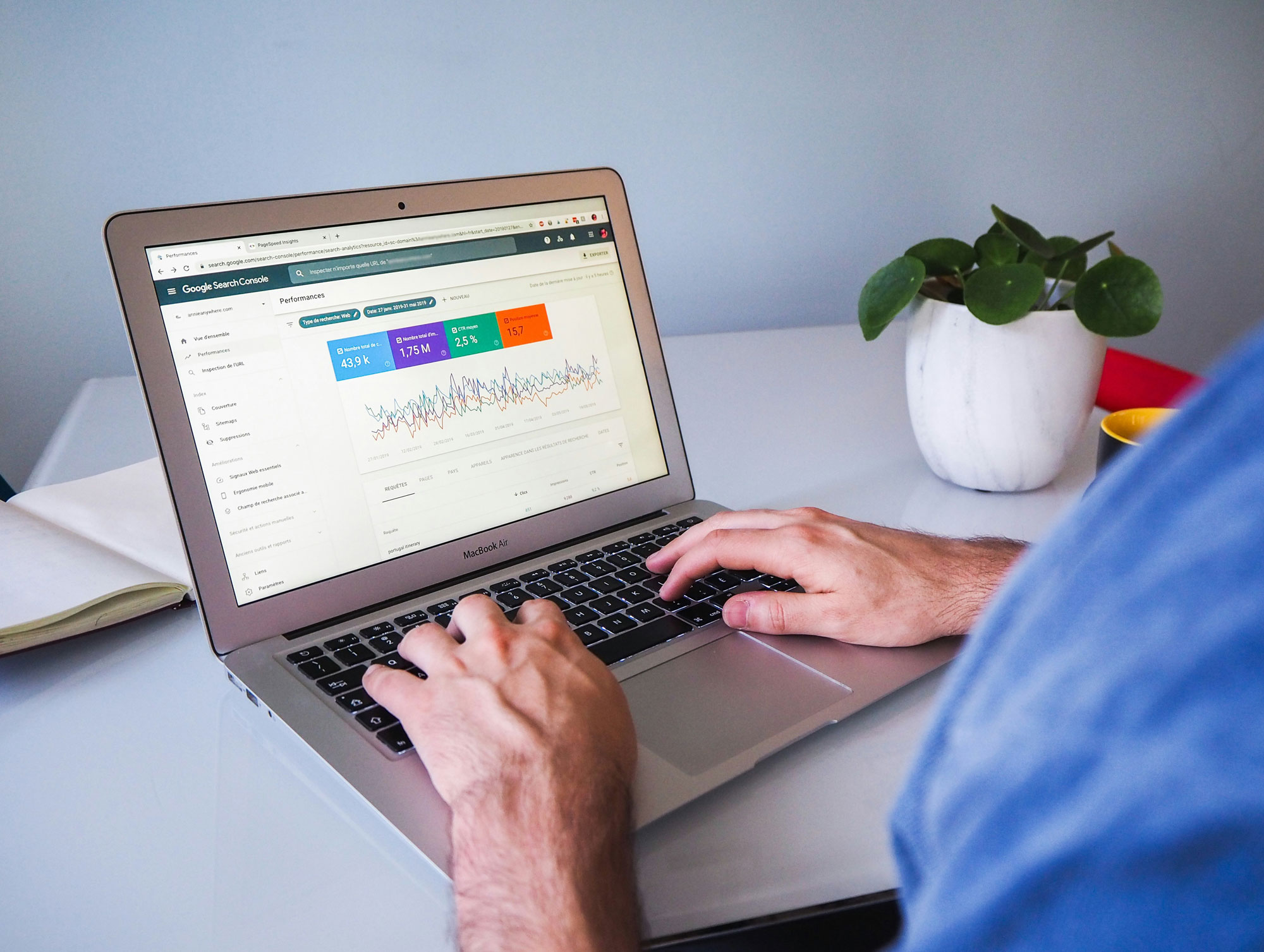Navigating the Digital Dallas Landscape: What to Look for in Your Web Development Partner
Dallas. It’s a city of ambition, innovation, and endless possibility. From the bustling tech hubs of North Dallas to the creative energy of Deep Ellum, businesses here are constantly pushing boundaries. And in 2025, a truly impactful online presence is the cornerstone of success.
You know you need more than just a basic website. You need a digital powerhouse that attracts clients, streamlines operations, and genuinely reflects your brand’s unique spark. But here’s the honest truth: finding the right web development partner in a city as dynamic as Dallas can feel like finding a needle in a haystack. There are countless agencies and freelancers, all promising amazing results.
Choose wisely, and you gain a long-term collaborator who understands your vision and propels your business forward. Choose poorly, and you risk wasted time, squandered money, and a website that falls short of your dreams – or worse, actively harms your brand.
So, how do you cut through the noise? What should you truly look for when seeking a Dallas web development partner? Let’s break it down, because this isn’t just about code; it’s about building a relationship that fosters growth.
1. They’re Strategic Thinkers, Not Just Coders
This is perhaps the most crucial differentiator. A truly great web development partner doesn’t just ask, “What features do you want?” They ask, “What are your business goals? What problems are you trying to solve? Who is your ideal customer in Dallas, and what do they need?”
- Business First, Tech Second: They’ll start with an in-depth discovery process. This isn’t a quick sales call; it’s a deep dive into your business model, competitive landscape (especially in the Dallas market), and long-term aspirations. They’ll want to understand your unique value proposition and how a new website can amplify it.
- They Challenge You (Respectfully!): A good partner won’t just say “yes” to everything. They’ll offer insights, suggest alternative solutions, and push back if they believe a certain feature or approach won’t genuinely benefit your business. This shows they’re invested in your success, not just in selling you services.
- Market Savvy: A Dallas-based agency worth its salt will have a nuanced understanding of the local market. They’ll know about the demographics, the common search behaviors of Dallas residents, and what resonates with businesses and consumers in our specific metroplex. This local insight is invaluable for crafting a truly effective strategy.

2. Proven Expertise & a Portfolio That Speaks Volumes
You wouldn’t hire a contractor to build your dream home without seeing their previous work, right? The same applies to your digital presence.
- Relevant Industry Experience: While not always mandatory, an agency with experience in your industry (or similar ones) will often hit the ground running faster. They’ll understand your specific challenges, compliance needs, and audience expectations.
- Diverse Tech Stack, Not a One-Trick Pony: Beware of agencies that only push one platform (e.g., “We only do WordPress!”). A versatile agency will recommend the best technology solution for your specific needs, whether it’s WordPress, Shopify, Laravel, or a custom build, rather than forcing your project into their limited toolset.
- A Strong, Modern Portfolio: This is their digital resume. Look for websites that are:
- Visually Appealing: Do they align with modern design principles?
- Mobile-Responsive: Do they look and perform flawlessly on smartphones and tablets?
- Fast-Loading: Test a few of their portfolio sites yourself. Speed is critical.
- Functional: Do interactive elements work? Is navigation intuitive?
- Case Studies with Measurable Results: Beyond just pretty pictures, do their case studies highlight tangible business outcomes? Look for examples of increased traffic, higher conversion rates, improved lead generation, or streamlined operations for their Dallas clients. This demonstrates they understand ROI.
3. Transparent Communication & Seamless Project Management
Building a website is a collaborative journey. Clear, consistent communication and an organized process are paramount to success.
- Clear Processes: Do they outline their methodology (e.g., Agile, Waterfall, Hybrid)? Will you understand each stage, from discovery to design, development, testing, and launch? A defined process provides predictability and reduces anxiety.
- Dedicated Project Manager: Will you have a single point of contact who understands your project inside and out, manages timelines, budgets, and team communication? This prevents confusion and keeps things on track.
- Regular Updates & Feedback Loops: How often will you get updates? How will feedback be gathered and incorporated? They should have established systems for meetings, progress reports, and iterative reviews.
- Tools for Collaboration: Do they use modern project management tools (like Jira, Asana, Trello) or communication platforms (Slack, Microsoft Teams) that allow for easy collaboration and transparency?
- Honesty About Challenges: No project is without its bumps. A trustworthy partner will communicate challenges proactively, offer solutions, and manage expectations, rather than springing surprises on you.

4. A User-Centric Design Philosophy (UX/UI)
Your website isn’t for you; it’s for your users. A great partner understands this deeply and designs with your customer at the forefront.
- Emphasis on User Research: Do they talk about understanding your audience through surveys, interviews, or usability testing? They should be obsessed with solving your customers’ problems.
- Wireframing & Prototyping: They won’t jump straight into fancy graphics. They’ll create blueprints (wireframes) and interactive mock-ups (prototypes) to test user flows and gather your feedback before heavy development, saving time and money in the long run.
- Intuitive Navigation & Clear Calls-to-Action: Their design process should prioritize making your website easy to navigate, with clear paths for users to find information and take desired actions (e.g., “Contact Us,” “Buy Now,” “Get a Quote”).
- Accessibility Awareness: A modern, responsible agency will ensure your website is accessible to people with disabilities, adhering to WCAG guidelines. This broadens your audience and demonstrates inclusivity.
5. Post-Launch Support & Scalability: Building for Tomorrow
Your website is a living asset. The launch is just the beginning. The best partners think beyond day one.
- Ongoing Maintenance & Security: Do they offer comprehensive plans for routine updates, security patches, backups, and bug fixes? Neglecting these can lead to costly problems down the line.
- Performance Monitoring: Will they proactively monitor your site’s speed, uptime, and overall health to ensure it’s always running optimally?
- Scalability Planning: They should build your website with future growth in mind. Can it handle increased traffic? Can new features be added easily? Will it integrate with new technologies as your Dallas business evolves?
- Ongoing SEO & Optimization Services: A truly valuable partner understands that SEO is an ongoing process. They’ll offer strategies for continuous improvement in search rankings and conversion rates, helping your business grow long after the launch.
- Long-Term Partnership Vision: Do they see themselves as a one-off vendor or a long-term digital partner invested in your sustained success? This includes offering strategic advice as your business and the digital landscape evolve.
6. Cultural Fit & Values Alignment
This is often overlooked but incredibly important for a smooth, productive collaboration. You’ll be working closely with this team.
- Do They “Get” Your Brand? Do they seem genuinely enthusiastic about your industry and what you do? Do they understand your brand voice and values? This ensures the final product authentically reflects your identity.
- Responsiveness & Enthusiasm: How quickly do they respond to your initial inquiries? Do they seem eager to learn about your business? Their responsiveness during the sales process is often a good indicator of their communication style during the project.
- Problem-Solvers, Not Just Task-Doers: Do they proactively offer solutions to your challenges, or do they just wait for instructions? Look for a team that takes initiative.
- Local Presence & Understanding: Choosing a Dallas-based agency means they understand the local nuances, market trends, and even the “vibe” of our city. They might even have connections within the Dallas business community that could benefit you. This local resonance can be a distinct advantage.
7. Transparent Pricing & Value, Not Just Cost
Cost is a factor, but value is paramount. The cheapest option is rarely the best investment.
- Detailed Proposals: Expect a comprehensive proposal that clearly outlines the scope of work, deliverables, timelines, and a detailed breakdown of costs. Avoid vague estimates or hourly rates without clear deliverables.
- Focus on ROI: A good agency will discuss how their work will translate into measurable returns for your business – whether it’s increased leads, sales, efficiency, or brand awareness.
- No Hidden Fees: Ensure all potential costs (hosting, third-party software, ongoing maintenance) are discussed upfront. Transparency builds trust.
- Quality Has a Price: Remember the “car or house” analogy. High-quality, custom solutions built by experienced professionals will command a higher price, but they also deliver superior performance, reliability, and long-term value.

8. Reputation, Reviews & Referrals
What do others say about them? This is your social proof.
- Client Testimonials: Look for testimonials on their website and ask for direct references you can contact.
- Online Reviews: Check platforms like Google Reviews, Clutch, UpCity, or Yelp. Look for patterns in feedback regarding communication, quality, and project delivery.
- Industry Awards & Recognitions: While not the sole factor, industry awards can indicate a commitment to excellence and innovation.
- Referrals: Ask trusted business contacts in Dallas if they can recommend any web development partners they’ve had positive experiences with.
Red Flags to Watch Out For
Just as important as knowing what to look for, is knowing what to avoid:
- Guaranteed Top Rankings: No ethical SEO agency can guarantee #1 rankings. Avoid anyone who makes such promises.
- Unrealistic Timelines or Prices: If it sounds too good to be true, it probably is. Quality web development takes time and resources.
- Poor Communication During Initial Talks: If they’re slow to respond or unclear before you’ve even signed a contract, imagine how it will be during the project.
- Lack of a Clear Process: If they can’t articulate how they’ll approach your project, they likely don’t have a structured methodology, leading to chaos.
- No Focus on Your Business Goals: If all they talk about are features and technology, without diving into your business objectives, they might not be the strategic partner you need.
- No Portfolio or Vague Case Studies: A professional agency will be proud to showcase their work and quantify their impact.
Your Next Step: The Informed Choice
Choosing a web development partner in Dallas is a significant decision for your business’s future. It’s not about finding the cheapest option or the one with the flashiest website (though a great website is a good start!). It’s about finding a true collaborator who understands your vision, aligns with your values, and has the expertise and proven process to turn your digital dreams into a tangible, revenue-driving reality.
Take your time. Do your research. Ask the tough questions. And trust your gut. When you find the right Dallas web development partner, you’ll feel confident that your investment will yield a website that not only looks incredible but actively helps your business thrive in the heart of Texas.
Frequently Asked Questions (FAQs) about Choosing a Web Development Partner
Q1: How many agencies should I interview before making a decision? A1: It’s a good practice to interview at least 3-5 agencies. This allows you to compare their approaches, communication styles, portfolios, and pricing structures, giving you a comprehensive view of the market.
Q2: Should I prioritize cost or quality when choosing an agency? A2: Always prioritize value and quality over the absolute lowest cost. A cheap website often means compromises on design, functionality, security, and scalability, leading to more significant expenses and headaches down the road. View your website as an investment that drives ROI.
Q3: Is it better to choose a large agency or a smaller boutique firm in Dallas? A3: Both have pros and cons. Large agencies often have vast resources, diverse teams, and established processes. Smaller boutique firms might offer more personalized attention, direct access to senior staff, and a more agile approach. Consider your project size, budget, and desired level of hands-on involvement.
Q4: What’s the importance of checking client references? A4: Extremely important. Client references provide direct insight into the agency’s communication, problem-solving, project management, and whether they delivered on their promises. Ask specific questions about challenges faced and how the agency handled them.
Q5: What questions should I ask about their post-launch support? A5: Ask about their maintenance packages (what’s included, what’s extra), response times for issues, security update protocols, backup procedures, and whether they offer ongoing SEO, marketing, or feature enhancement services. Clarify who will be your point of contact for support.
Q6: How can I ensure the agency understands my specific industry needs? A6: Look for agencies with a portfolio or case studies in your industry. If they don’t have direct experience, assess their discovery process: do they ask intelligent, probing questions about your industry’s unique challenges, regulations, and target audience? This shows their willingness and ability to learn quickly.
Q7: Should I sign a long-term contract or go project-by-project? A7: For the initial website build, a project-based contract with clear milestones is typical. For ongoing maintenance, support, or marketing, monthly or annual retainers are common. Discuss payment schedules and contract terms thoroughly before committing.





